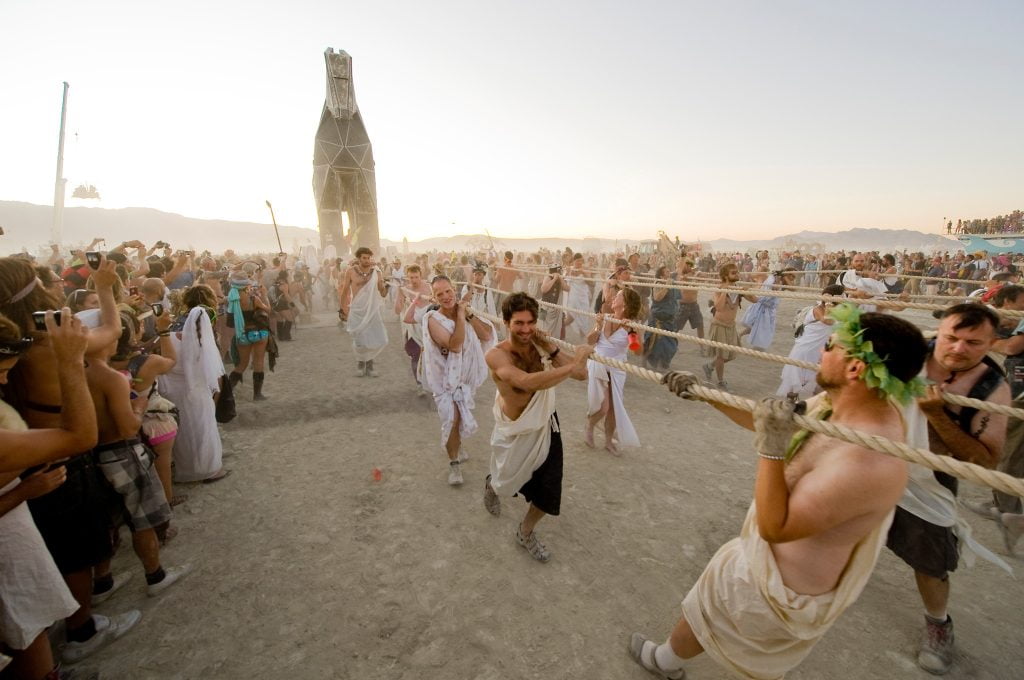Welcome to our guide, where we delve into the vibrant and sacred celebration of the Festival of Tabernacles. Also known as Sukkot, this significant Jewish festival holds deep cultural and religious symbolism. Lasting for seven days (eight in the land of Israel), this annual event commemorates the Israelites’ journey through the wilderness and their dependence on God’s providence with the building of temporary dwellings or sukkahs. The Festival of Tabernacles is a joyous occasion brimming with traditions such as communal feasting, prayer, and the waving of the lulav and etrog. Join us as we unveil the rich traditions, faith, and significance behind this ancient celebration.
When The Tabernacle Choir and Orchestra members aren’t performing or practicing on tour, they are meeting with Church members and exploring local culture like the pyramids in Mexico during their 2023 world tour. (cont) https://t.co/pCOBr897YC pic.twitter.com/IB0rbDhoAa
— The Tabernacle Choir (@TheTabChoir) August 12, 2024
Introduction to the Festival of Tabernacles
The Festival of Tabernacles, also known as Sukkot, is a significant Jewish holiday that commemorates the forty years during which the Israelites wandered in the desert. This festival is celebrated with joy and gratitude, emphasizing the themes of unity, harvest, and historical remembrance.
Historical Significance
The Festival of Tabernacles holds deep historical significance as it reflects the Israelites’ journey from slavery in Egypt to freedom in the Promised Land. It serves as a reminder of God’s provision and protection during their time in the wilderness.
Celebratory Traditions
During this festival, Jewish families built temporary shelters called sukkahs decorated with fruits and plants, symbolizing the makeshift dwellings used by the Israelites in the desert. Families gather for festive meals in the sukkahSukkahhake the lulav and etrog, symbolizing unity and gratitude for the harvest.
It is a time of joy and togetherness, where communities come together to rejoice, pray, and reflect on the blessings of the year. The Festival of Tabernacles is a time of feasting, hospitality, and spiritual renewal.

History and Origins of the Festival
The Festival of Tabernacles, also known as Sukkot, is a significant Jewish holiday that commemorates the forty years that the Israelites spent wandering in the desert after the exodus from Egypt. This year, the festival is celebrated globally with traditional rituals and customs.
Historical Significance
The origins of the Festival of Tabernacles can be traced back to ancient times when the Israelites lived in temporary shelters or booths during their wilderness journey. These temporary dwellings, known as sukkahs, symbolize the fragility of life and the importance of gratitude for blessings received.
The festival also marks the harvest season, during which agricultural offerings were made in the Temple in Jerusalem. Today, many Jewish communities continue to observe this tradition by building sukkahs and displaying festive decorations.
Traditional Customs and Practices
During the Festival of Tabernacles, families come together to share meals in the sukkah, which symbolizes unity and togetherness. The shaking of the lulav and etrog, representing different elements of nature, is a common ritual performed during the holiday.
- Lulav: Consists of palm, myrtle, and willow branches held together.
- Etrog: A citron fruit used in the ritual along with the lulav.
Significance of the Festival in Various Cultures
The Festival of Tabernacles, also known as Sukkot, holds a significant place in various cultures around the world, symbolizing unity, gratitude, and faith.
Symbol of Shelter and Unity
In Jewish tradition, Sukkot commemorates the forty years that the Israelites wandered in the desert and lived in temporary shelters. These shelters, called ‘sukkahs,’ symbolize the impermanence of life and the importance of unity within communities.
Gratitude for Harvest and Nature
Across different cultures, the Festival of Tabernacles is celebrated as a time of thanksgiving for the bountiful harvest and a reminder of the connection between humanity and nature. It emphasizes the importance of gratitude and sustainability.
Traditional Practices and Rituals
The Festival of Tabernacles, also known as Sukkot, is a time-honored tradition revered by Jewish communities worldwide. This seven-day harvest festival holds immense cultural significance and religious importance.
Sukkah Building
One of the central rituals of Sukkot is the construction of a sukkah, a temporary hut or booth. These structures symbolize the dwellings used by the Israelites during their exodus from Egypt and serve as a reminder of gratitude for divine protection.
Families decorate the sukkah. Sukkah fruits, foliage, and decorative items during the festival create a joyous and welcoming atmosphere.
Four Species
Another cherished tradition is the waving of the Four Species, consisting of a palm branch (lulav), willow branches (aravot), myrtle branches (hadasim), and a citron (etrog). Each of these elements represents different types of people and teaches unity within the community.
- Lulav: Symbolizes those with both knowledge and good deeds
- Aravot: Represents individuals who lack both knowledge and good deeds
- Hadasim: Signifies those with knowledge but lack good deeds
- Etrog: Represents individuals with good deeds but lack knowledge
Modern Observance and Celebrations
Modern observance and celebrations of the Festival of Tabernacles have evolved to blend tradition with contemporary practices, creating a vibrant tapestry of cultural festivities. Participants often gather in temporary structures known as sukkahs, symbolic of the Israelites’ dwellings during their exodus from Egypt.
Virtual Gatherings
In recent years, virtual gatherings have gained popularity as a way for individuals from around the world to come together and celebrate the festival online. This trend has allowed for greater inclusivity and participation, especially for those unable to travel to physical gatherings.
Cultural Performances
Communities often organize cultural performances, including music, dance, and theatrical presentations, to honor the festival’s significance. These performances showcase traditional customs and stories while also incorporating modern artistic interpretations.

Spiritual and Religious Symbolism
The Festival of Tabernacles, also known as Sukkot, holds deep spiritual and religious symbolism for the Jewish community. It is a time of joy, unity, and thanksgiving, commemorating the Israelites’ journey through the desert and the protection provided by God.
Symbolism of the Sukkah
The SukkahSukkahmporary dwelling constructed during the festival symbolizes the fragility and transience of life. It serves as a reminder of the dependence on a higher power and the importance of humility in one’s existence.
Four Species
During Sukkot, the Four Species – the lulav (palm branch), etrog (citron), myrtle, and willow – are ritually waved in six directions. Each plant symbolizes a different type of Jew, emphasizing the unity and diversity within the community.
Community and Family Traditions
Community and family traditions play a significant role in the Festival of Tabernacles, also known as Sukkot. It is a time when families come together to celebrate and honor their shared beliefs and customs.
The Sukkah Ritual
One of the central traditions during Sukkot is the building of a sukkah, a temporary hut or shelter. Families join hands to construct the sukkah, symbolizing the temporary dwellings their ancestors used during their journey through the desert. This traditional act strengthens family bonds and demonstrates unity.
Harvest Celebrations
During the Festival of Tabernacles, there is a focus on gratitude for the harvest season. Families gather in the sukkah. Sukkahare meals are made from the season’s fresh produce. This time of thanksgiving reinforces the importance of family and community support.
- Sharing meals made with locally sourced produce
- Reflecting on the blessings of the harvest
Impact of the Festival on Faith and Beliefs
The Festival of Tabernacles, also known as Sukkot, holds significant importance in the Jewish faith and beliefs. This traditional celebration, observed in the fall of each year, commemorates the Israelites’ journey through the wilderness and their reliance on God’s provision.
Traditional Customs and Practices
During Sukkot, families built temporary shelters called sukkahs, decorated with fruits and plants, to remember the makeshift dwellings used by the Israelites. The act of dwelling in a sukkah for eight days fosters a sense of humility and gratitude towards God’s protection.
Spiritual Reflection and Unity
Observing Sukkot encourages believers to reflect on their dependence on God and the transient nature of material possessions. It serves as a time for spiritual renewal and communal gatherings, fostering unity and solidarity among the Jewish community.
Frequently Asked Questions
- What is the Festival of Tabernacles?
- The Festival of Tabernacles, also known as Sukkot, is a Jewish holiday that commemorates the forty years the Israelites spent wandering in the desert after the exodus from Egypt.
- When is the Festival of Tabernacles celebrated?
- The Festival of Tabernacles usually takes place in the fall, following the Jewish holiday of Yom Kippur. It typically lasts for seven days, with an additional day in the diaspora.
- What are some traditions associated with the Festival of Tabernacles?
- During the Festival of Tabernacles, it is customary for Jewish people to build temporary booths called sukkahs and to eat and sleep in them to remember the Israelites’ time in the wilderness.
- How do people celebrate the Festival of Tabernacles?
- Celebrations of the Festival of Tabernacles often include festive meals, prayers, waving of the lulav and etrog (Four Species), and special synagogue services.
- Why is the Festival of Tabernacles significant?
- The Festival of Tabernacles is significant as it is a time to remember and appreciate the journey of the Israelites, to show gratitude for the harvest season, and to rejoice in the presence of God.
Embracing Tradition and Strengthening Faith: Closing Thoughts on the Festival of Tabernacles
As we conclude our exploration of the Festival of Tabernacles, we have delved into the rich tapestry of traditions and beliefs that define this ancient festival. This celebration, also known as Sukkot, holds deep significance for the Jewish community, symbolizing both historical pilgrimage and spiritual abundance.
Through the construction of sukkahs, the waving of the lulav and etrog, and the communal meals shared under the open sky, individuals come together in unity and gratitude, reflecting on the impermanence of life and the providence of God.
In summary, the Festival of Tabernacles serves as a reminder of the interconnectedness of faith, family, and community, fostering a sense of belonging and renewal. May the spirit of Sukkot inspire us all to cherish our traditions, strengthen our faith, and embrace the blessings that surround us.




